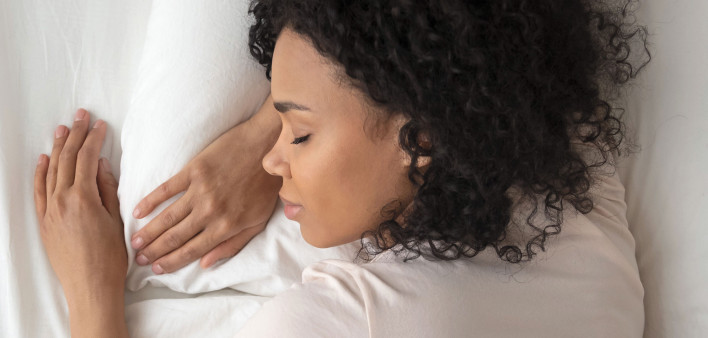How much sleep do I need every night?
The National Sleep Foundation recommends seven to nine hours for adults ages 18 to 64. Insufficient sleep is associated with poor health, weight gain and diminished cognitive abilities. When it comes to driving, sleep deprivation is like being intoxicated. Sleepy drivers cause thousands of car accidents every year.
Getting enough sleep may boost your immune system, which means you will likely get sick less often. A good night’s sleep also reduces the risk for serious medical conditions such as type 2 diabetes, high blood pressure and heart disease and helps maintain a healthy body weight. Being well rested provides more energy, lowers stress and improves your mood. Sleep is also associated with improved relationships.

Istock
I’m always tired. Can I take supplements?
Maybe, but it’s important to look at the cause of your fatigue. Your doctor may ask if you’re getting seven to nine hours of sleep on most nights. You may be screened for stress or depression. Your doctor may also want to know whether you’re drinking enough water and exercising every day.
If there isn’t an obvious reason why you are tired, your doctor may order lab tests to check your blood cell count, thyroid and liver function, and iron and B-12 levels. If your iron or B-12 levels are low, your doctor may recommend a supplement.
Adequate sleep and regular exercise will help. Drink lots of water, and eat a healthy diet. Having a cup of black tea or coffee before 2 p.m. may also help. If these don’t work, your doctor can suggest other supplements that may give you a boost.

Istock
Is drinking coffee bad?
For most people, coffee may do more good than harm. Studies show that coffee may protect the liver, decrease the risk for Parkinson’s disease and reduce the chances of developing type 2 diabetes. A large study found that people who regularly drank two to four cups of coffee a day had a lower risk for stroke. Coffee may even improve cognitive ability and alleviate depression.
How did coffee get its bad reputation? Early studies that investigated coffee drinkers didn’t control for factors such as drinking alcohol and inactivity. When coffee consumption was evaluated more scientifically, no added risk for heart disease or cancer was found. Researchers did not find a link between caffeinated coffee and irregular heartbeat, stroke, heart attack, high cholesterol or stomach problems.
Coffee drinking isn’t for everyone. Caffeine can interfere with sleep and may be harmful to children. Some people may become dependent on caffeine and become irritable when they don’t get their cup of joe. Although coffee has many potential benefits, more isn’t better. Limit yourself to no more than four cups a day. Also, drink it black, as cream and sugar add unhealthy fat and carbs to your diet.
Ask POZ is an ongoing section on POZ.com dedicated to answering general wellness questions. Go to poz.com/ask to read more answers, and email ask@poz.com to submit your questions!







Comments
Comments